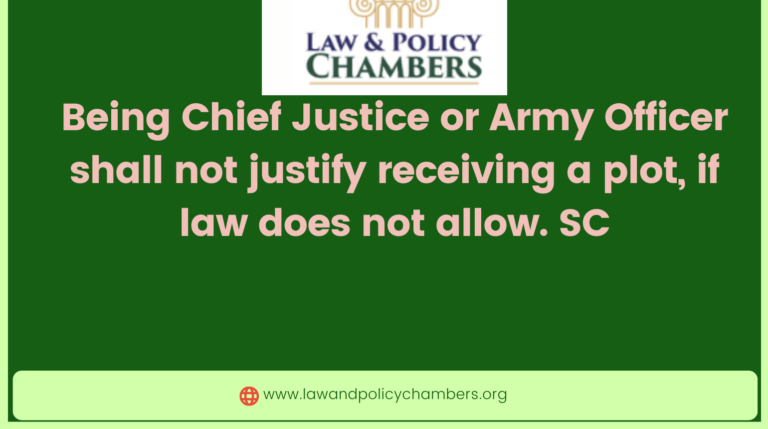The Supreme Court, in its recent and highly significant judgment (Civil Petition No. 3203 of 2017), has ruled that the allotment of plots in public schemes must comply with the applicable law. No one, even in a position of power, shall be allowed to excessively and illegally benefit themselves through the misuse of their authority. The case revolved around a dispute regarding the allotment of plots by the National Police Foundation to a police officer who also held the position of managing director in the said Foundation.
In brief, a police officer named Mr. Farooq was initially allotted a plot from the Foundation, which he subsequently sold at a profitable rate. He later requested the Foundation for another plot. During a meeting of the Foundation’s directors, in which Mr. Farooq was present as the managing director, the allotment was instantly approved, and a second plot was granted to the police officer. He then sold this plot with a profit of approximately ten times its value. A case was filed by a petitioner, who had no financial interest in the matter, in the larger interest of the public.
The Court held that the law permits the Foundation to allot only one plot to a police officer throughout Pakistan, expressly prohibiting the allocation of a second plot to any officer. In this case, the officer was granted a second plot, and that too at a highly subsidized rate, while the officer himself had a significant role in the approval process. The Court deemed this case to involve a highly important matter of public interest.
Initially, an objection was raised regarding the maintainability of the petition, suggesting that the petitioner should have approached the High Court through an Intra Court Appeal before seeking relief from the Supreme Court. However, the Court found this objection untenable based on the jurisprudence developed by the Court, asserting that the Constitutional powers of the Court take precedence over powers conferred by law. The Court noted certain exceptions in the Law Reforms Ordinance, 1972, which empower the High Courts to hear appeals against the orders of a single judge through a panel of two judges. Additionally, when a matter pertains to a question of public importance, the Court has the authority to consider a petition directly under Article 185 of the Constitution. The Court emphasized that the right to appeal in the Supreme Court is a constitutional right and cannot be nullified by ordinary law. Thus, the Court rejected the respondents’ objection.
c.p._3203_2017



